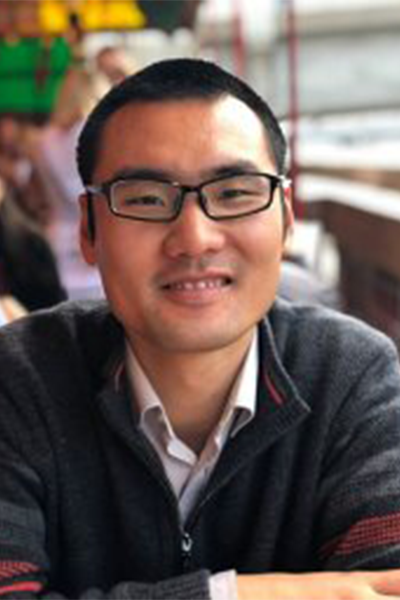Adjunct Lecturer
Contact Information
Education
- Postdoc in Radiology, Harvard Medical School, 2021
- PhD in Electrical and Computer Engineering, Purdue University, 2017
- MSEE in Electrical and Computer Engineering, Purdue University, 2016
- BA in Mathematics, St. John's University (MN), 2012
- BA in Computer Science, St. John's University (MN), 2012
Biography
Xiao Wang, Research Staff Scientist in the Computational Science and Engineering Division at Oak Ridge National Laboratory (ORNL) and adjunct faculty member at the University of Tennessee, Knoxville, with appointments in both the Department of Electrical Engineering and Computer Science and the Data Science and Engineering (DSE) program, earned dual BA degrees in mathematics and computer science from Saint John’s University, MN (2012). He completed his MS (2016) and PhD (2017) in electrical and computer engineering at Purdue University under Charles Bouman, Showalter Professor of Electrical and Computer Engineering and Biomedical Engineering at Purdue University, and Samuel Midkiff, Professor of Electrical and Computer Engineering at Purdue University. He then conducted postdoctoral research in medical imaging at Harvard Medical School and Boston Children’s Hospital before joining ORNL in 2021.
Wang’s research lies at the intersection of artificial intelligence (AI), high-performance computing (HPC), and computational imaging. He develops scalable algorithms that combine AI, imaging physics, and advanced computing to solve large-scale imaging challenges. His work spans medical imaging, security screening, earth system modeling, satellite observation, x-ray & electron microscopy, and industrial inspection with a focus on improving resolution, speed, and trustworthiness of imaging systems.
He has received multiple recognitions for his work, including being a three-time finalist for the ACM Gordon Bell Prize (2017, 2024, 2025), winner of the 2022 AAPM Truth CT Reconstruction Challenge, and recipient of the 2024 HPCWire Top Supercomputing Achievement Award.
Research
Wang's current research focuses on building energy-efficient, scalable, and trustworthy Vision Transformer foundation AI models to accelerate discovery in medical, climate, and materials imaging.
Publications
For a full list of publications, please visit Wang's Google Scholar.
